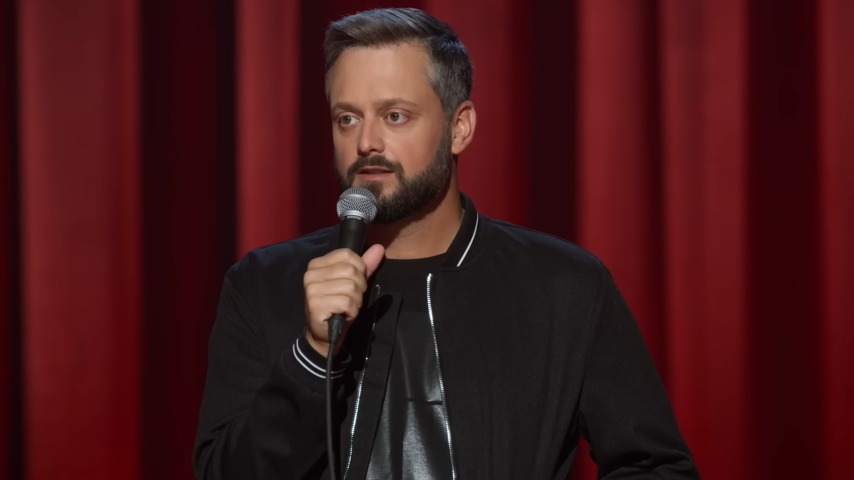Nate Bargatze kind of thought studios would get in on his Boys & Girls Club Emmy's bit
"If someone was giving these long speeches, I just thought they could be like, ‘and Netflix is gonna cover my overage.'"
Nate Bargatze, Screenshot: Netflix Is A Joke/YouTube
As viewers of the ceremony know, first-time Emmy’s host Nate Bargatze came up with a novel (if mildly controversial) method to get award recipients to cut their acceptance speeches short at this year’s show: Every second winners went over their allotted 45-second window, Bargatze would deduct a thousand dollars from a planned $100,000 donation he intended to make to the Boys & Girls Club Of America. As viewers of the show also know, the gesture backfired from a couple of different angles. Reviewers of the show weren’t wild about seeing that kind of social pressure applied to getting winners to wrap it up more quickly—overages might irritate CBS, the network airing the show, but a lot of folks like the speeches. But also, it essentially failed as a deterrent: By the end of the night, the number was actually more than $50,000 in the hole, which caused CBS to step in and cover the original $100,000 donation, while Bargatze pledged another $250,000 of his own money.
